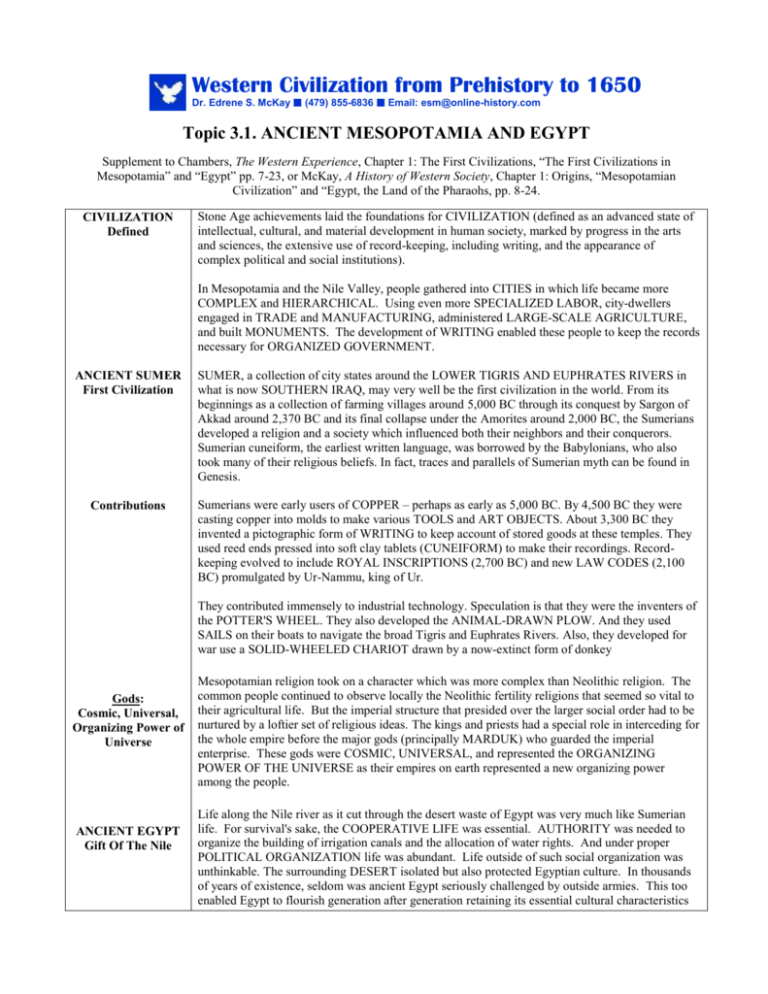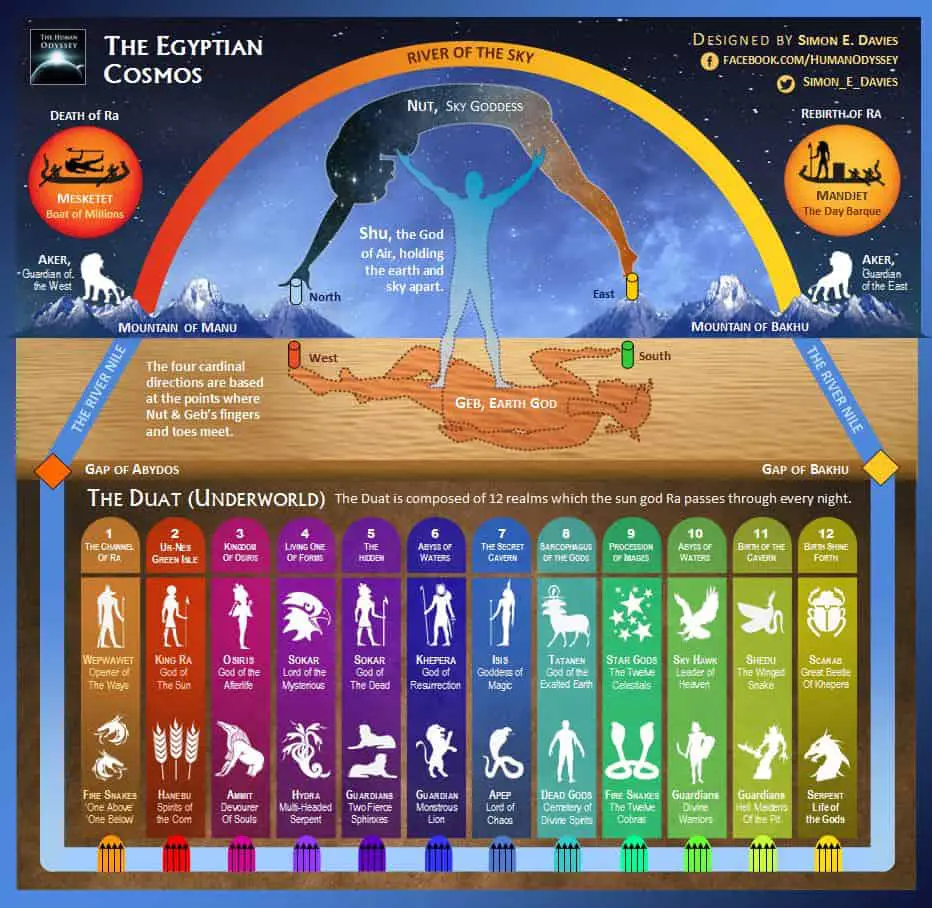
The earth was a flat, disc-shaped piece of land floating on deep cosmic waters, which is why if you dig deep enough, you eventually hit water. All throughout the Bible, we find the common ancient view that the cosmos was a three-tiered order, consisting of three distinct realms stacked on top of each other: the skies, or heavens above the land, surrounded by water and the waters below. Modern people think of the earth as a globe spinning around the sun in the vastness of space, but in the ancient world, the Israelites included, people saw things differently. Let’s take a deeper look at how the ancient Israelites understood the division of the sky and the land as a starting point.

This simple observation has huge implications for understanding what on earth is happening in Genesis chapter one. God revealed himself to the people of ancient Israel (the original audience of the Bible) and when he did so, he spoke in terms of their cultural understanding of the cosmos. To put it another way: if you read the Bible in its historical and literary context, you will not find any text in which God updates our understanding of astrophysics or biochemistry. We are simply saying that in the Bible, he doesn’t. We are not saying God couldn’t do such a thing. That said, something God does not seem to typically do when he reveals himself in history, is provide science lessons. He reveals himself through burning bushes, elaborate visions, and births himself into the world through a poor, working-class, teenage girl.

Nevertheless, before we move onto the Garden and the Fall, there is so much to explore in this first chapter of the first book.Īs you read through the entire Bible, it will become clear that God has a flair for drama. Which sort of makes sense as Genesis comes from a Hebrew word Bereshit, which means “in the beginning.” It’s here we see God set the stage for the Garden of Eden and all that will unfold with Adam and Eve. For whichever side of that argument you might agree with, it begins with the interpretation of the book of Genesis.

While there is no shortage of topics to discuss, pages one and two of Genesis have unfortunately been a frontrunner for controversy due to the creation vs. The Bible is historically the most well-read, well-circulated, commonly quoted, yet widely-criticized book of all time.


 0 kommentar(er)
0 kommentar(er)
